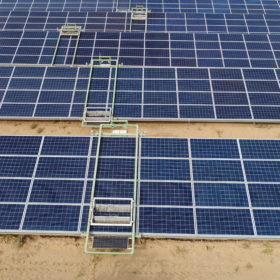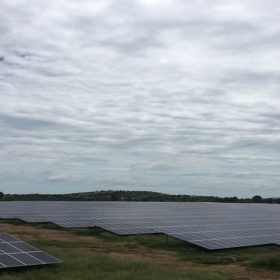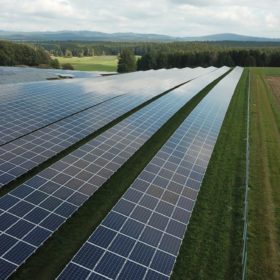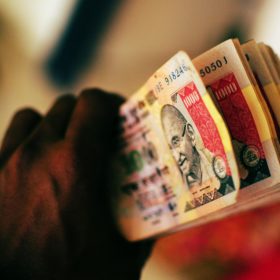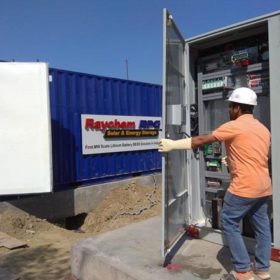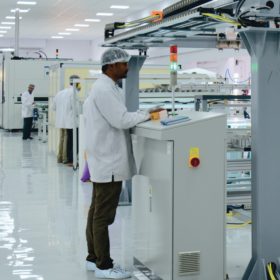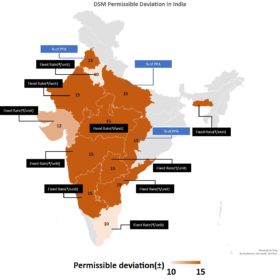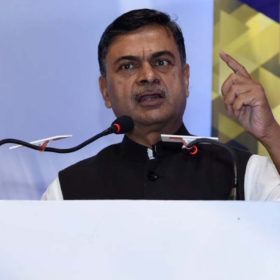Italy’s Enel scores its first solar win in India
The renewable energy developer—which owns and operates 172 MW of wind capacity in India—has claimed its first solar tender win in the country with a SECI award for 300 MW power.
Solarpack reveals record-breaking solar plant will be in Rajasthan
The Spanish developer, which will sell solar energy at an Indian record low tariff of Rs2.36/kWh under a 25-year deal has spoken to pv magazine about the specifics of the landmark PV plant.
India sets new record-low solar tariff of Rs2.36/kWh
The winning bid, for 300 MW of generation capacity by Spanish developer Solarpack in a 2 GW auction is 3.3% lower than the previous record of Rs2.44.
Breaking News: Has India posted a new record low solar price?
A 2 GW tender conducted by the Solar Energy Corporation of India has reportedly concluded with prices of Rs2.36-2.38/kWh, according to a tweet which emerged this afternoon.
NTPC seeks to empanel vendors for bulk solar module procurement
The state-owned power generator plans to procure around 1 GW of crystalline solar modules in the current financial year. The requirement will increase to 2-2.5 GW capacities per year in subsequent years.
Designing behind-the-meter solar-plus-storage program for India
A new report outlines key considerations for Indian regulators and other stakeholders when designing behind-the-meter distributed solar-plus-storage system programs, based on evidence from similar programs in the United States.
Hearing about solar cell safeguarding duty on Friday
The Directorate-General of Trade Remedies has called a meeting of concerned parties as it considers whether to extend the duty on solar cells.
India’s renewable energy revolution serves as a model for the world
The country—aiming for a renewable power target of 450 GW by 2030—has emerged as the world’s largest and most competitive clean energy auction market.
One Nation, One Sun, One DSM
The government needs to rationalize and ensure uniformity of Deviation Settlement Mechanism (DSM) regulations across the country for the seamless integration of renewable energy.
Solar panel imports to face 20-25% customs duty from August
The levy on modules will then almost double to 40% within a year and cells will see a similar rise, from an initial rate of 15%.
